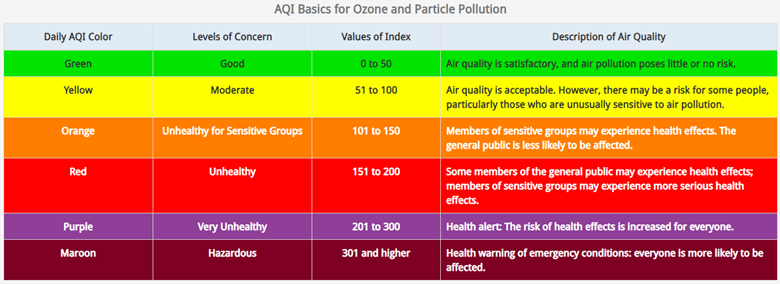MDHHS offers advice to protect health during smoke events
LANSING, Mich. – Meteorologists at the Michigan Department of Environment, Great Lakes, and Energy (EGLE) have issued air quality alerts for high levels of fine particulate in the air. These levels are caused by smoke from fires in Canada. Meteorologists are continuing to assess conditions and will issue additional alerts if necessary.The average air quality is expected to fluctuate between unhealthy for sensitive groups to unhealthy for everyone with the possibility of the Upper Peninsula and northern Lower Peninsula experiencing some hours when concentration cause the Air Quality Index to be very unhealthy or hazardous for everyone.
How to sign up for alerts: You can sign up for alerts through the EnviroFlash system. This subscriber system allows you to choose the area you would like to get alerts for. The system will send the alert directly to your email or send you a text message.
The Air Quality Index:The Air Quality Index, or AQI is a color-coded way for residents to see what the levels of some types of air pollution are in their area. The higher the AQI, the worse the air quality is and the more cause for concern.Currently the AQI for particulate matter (PM) is high in many parts of Michigan and the eastern US due to smoke and fires in the US and particularly in parts of Canada. The AQI is also used for levels of other pollutants, like ozone.

Protecting your heath during smoke events: Anyone can get sick from exposure to wildfire smoke but some people are more sensitive to particle pollution. Older adults aged 65 and older, pregnant people, children and people with lung and heart conditions may be more likely to get sick if they breathe in wildfire smoke. Symptoms from breathing in particle pollution from wildfire smoke can include wheezing, coughing and shortness of breath. If you have asthma, follow your asthma control action plan or contact your health care provider if you have symptoms. If you have heart disease and experience these symptoms, contact your health care provider.The most protective option when air is unhealthy for you is to stay indoors with air conditioning, reduce strenuous activities and limit outdoor activities. If you have to be outside, N95 masks offer enhanced protection when used according to product instructions.During unhealthy for sensitive groups (AQI orange) to unhealthy for everyone air quality events (AQI red), the Michigan Department of Health and Human Services (MDHHS) advises the following:
For people with heart or lung disease, pregnant people, older adults aged 65+, children and teens it is suggested to take the following steps to reduce exposure:
∙ Avoid strenuous outdoor activities.
∙ Keep outdoor activities short.
∙ Consider moving physical activities indoors or rescheduling them.
For everyone else:
∙ Choose less strenuous activities (like walking instead of running) so you don’t breathe as hard.
∙ Shorten the amount of time you are active outdoors.
∙ Be active outdoors when air quality is better.
During very unhealthy or hazardous for everyone air quality (purple to maroon Air Quality Index levels), MDHHS advises the following for everyone:
∙ Stay indoors with the doors and windows closed using MERV-13 or better air filtration.
∙ Seek shelter elsewhere if you do not have an air conditioner and it is too warm to stay inside with the windows closed. Call or text 211 or contact your local health department to find out if there is a shelter or cooling center nearby.
∙ Use air filters to improve indoor air quality. Whether you have a central air conditioning system or a portable room unit, use high efficiency filters to capture fine particles from smoke. If you don’t have access to those filter systems, you can create a temporary air purifier with a 2012 or newer box fan and attaching a MERV-13 or higher air filter to it. Information is available online.
∙ Keep activity levels low.
∙ Avoid outdoor activities.
∙ Use N95 style masks if you have to be outside.
∙ Surgical and cloth masks are not recommended as they are not designed to prevent breathing in the fine particulate matter in wildfire smoke.
Follow MDHHS on social media for the most recent health and safety information:
Michigan Department of Health and Human Services | Facebook
Michigan HHS Dept (@MichiganHHS) / Twitter
Information on climate and wildfires: Extreme heat caused by climate change can cause longer and more severe dry periods due to increased evaporation and lack of rainfall, causing vegetation to ignite easier and fires to spread faster. Windy conditions, like we’re seeing now, can not only help the fires to spread easier, but can also harm fire control efforts and cause severe air quality concerns not just locally, but even hundreds of miles away as the corresponding smoke is carried with the winds. As greenhouse gases continue to warm the planet, events like these will become all the more frequent and severe, highlighting the importance and necessity of near- and long-term climate action, and underscoring the need to rapidly implement the MI Healthy Climate Plan. For more information on climate change and your health visit Michigan.gov/climateandhealth.
Additional helpful resources:These resources may be helpful to you if you are looking to learn more about air quality in your area, specifically around wildfires and smoke impacts.US EPA Wildfires and Smoke mapUS EPA Interactive Map of Air QualityUS EPA Fires and your healthUS EPA Particle PollutionEGLE Air Monitoring Information and interactive mapIs burning allowed? and gov/OpenBurning
|


